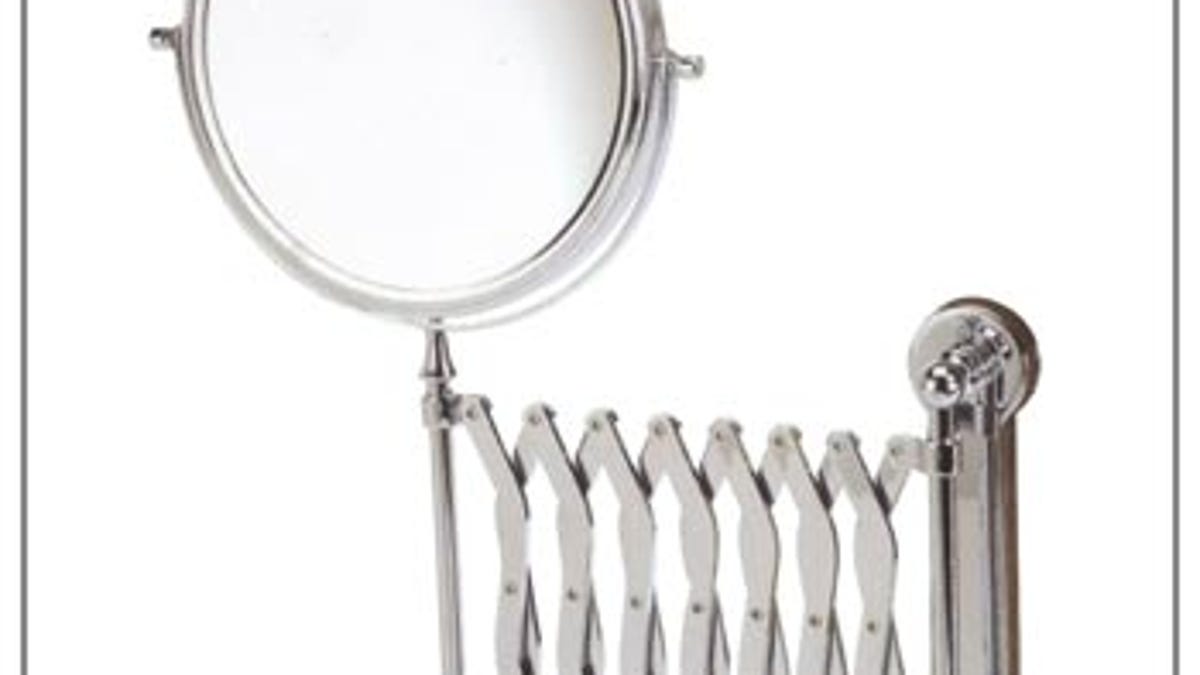Down with reflective screens
More TVs and laptop displays are equipped with glossy screens designed to enhance brightness and contrast--but are they worth the dramatically increased reflectivity?

I'm in the market for a new laptop, and I was immediately drawn to the Dell XPS M1330 the minute it appeared in the CNET Labs last week. It's easily one of the slickest-looking Windows laptops I've seen in a long time, and despite its ultraportable size, it still packs all the serious computing horsepower and features I'm looking for, including a slot-loading DVD burner, HDMI output, and a built-in flash media reader. I was seriously ready to budget out $2,000 for this thing--until I noticed the screen.
The M1330 is only available with what Dell calls a "TrueLife" display. According to Dell's Web site, TrueLife delivers "crisper images, brilliant colors, sharp contrast, wider viewing angles, and reduced eye fatigue." That may all be perfectly true, but the problem is that TrueLife is a reflective display. So staring at the M1330 is like looking at yourself in the mirror. Maybe the contrast and black levels are better, but I wouldn't know--I'm too busy being distracted by the reflection of myself and the rest of the room behind me.
Dell, of course, isn't the only manufacturer that offers this "advantage." Pretty much every other PC manufacturer does, too--Apple, HP, Gateway, you name it. Senior Editor Dan Ackerman tells me that glossy screens tend to be the default option on "consumer" laptops, while nonreflective matte screens remain the standard for "business" notebooks. Some manufacturers let you choose between the two for build-to-order models, but Dell--at least at this point--is only offering the reflective TrueLife screens on the M1330.
It's not just laptops that suffer from this scourge. TVs have long had reflection problems, too. In the flat-panel world, LCDs always had the advantage of flat matte (nonreflective) screens, while plasmas were burdened with a pane of reflective glass. But that's no longer an axiomatic law: the Panasonic TH-PX77U plasma line has a matte filter that does an impressive job at reducing room reflections, while the Samsung LN-T65F LCD series adds a reflective coating to improve contrast and brightness levels. Mission accomplished--the Samsung delivers one of the best images we've seen to date on an LCD TV. But--for me, at least--the mirrorlike reflectivity is a price I'm not willing to pay, no matter how good the improvement in black level.
By comparison, Samsung offers a nearly identical line--the LN-T61F series--that utilizes a good ole flat matte screen instead. Yes, the picture quality isn't quite as good, but I'd take a T61F model over a T65F any day, if only because I could enjoy a movie or TV show without seeing my living room reflected back at me on the screen.
There are, of course, plenty of people who seem to prefer the advantages offered by the reflective glossy screens, but it seems to be enough of an issue that Googling "glossy vs. matte screens" can find you an impressively passionate flame war or two. Personally, I have no problem with a difference of opinion--it comes down to individual taste, after all. I'd just prefer for manufacturers to let the consumer decide, rather than forcing the glossy option on those of us who'd prefer plain old flat matte.
So here's hoping Dell adds a matte screen option to its XPS M1330 build-to-order page. Until then, I just can't wait to see how shiny the iPhone's glass screen is.

